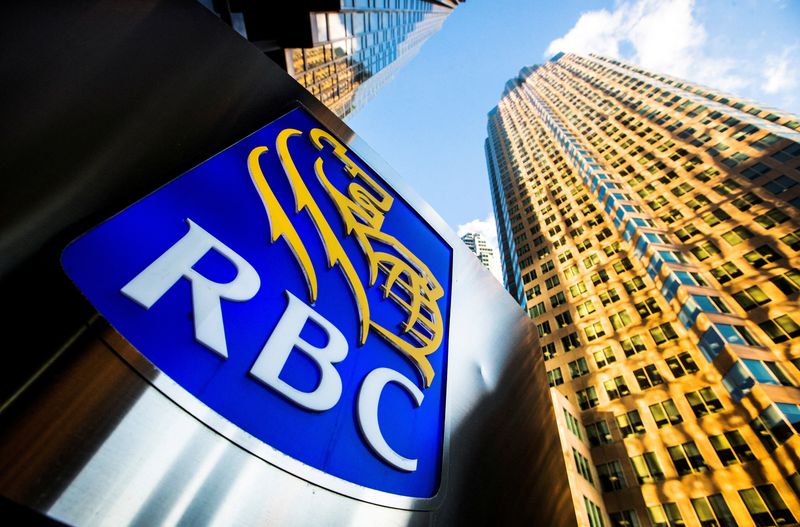By Nivedita Balu
TORONTO (Reuters) - Canada's big bank results are expected to bring to light a number of challenges as lenders set aside more funds for bad loans in a tough economy that has also led to a slowdown in dealmaking and forced borrowers to rethink about new mortgages.
The big six banks, which control a majority of the market in the country, have had to brace for macroeconomic uncertainties and build reserves while also ensuring they have enough capital to meet new regulatory requirements in case of uncertainties.
"We expect another challenging quarter for the group," KBW analyst Mike Rizvanovic said, adding that he expects slowing loan growth, higher expenses and higher provisions for credit losses.
The shares of the top five banks - Royal Bank of Canada, TD Bank, Bank of Montreal, Bank of Nova Scotia and CIBC - have lost between 2% and 8% so far this year. National Bank has gained about 9% while the broader Toronto Stock Exchange's index has risen 2.2%.
The Bank of Canada has hiked interest rates ten times since March 2022, most recently in June after a brief pause in March. While the rate hikes help improve margins from money banks earn by lending out cash, the rates impact mortgages and borrowing costs.
Those dynamics, among others, have forced Bay Street analysts to lower their estimates but have largely maintained their rating to reflect the banks' reputation as safe havens owing to their strong capital position and reserve levels.
Royal Bank of Canada and TD Bank will kick off third-quarter results on Thursday.
RBC analyst Darko Mihelic forecast a 9% third-quarter revenue decline from a year ago for the capital-market business of the large Canadian banks. He also forecast total provisions for credit losses to increase about 8% from the prior quarter to $2.3 billion.
Of the big five, analysts expect TD to be better positioned on capital, deposits and scale, owing to its acquisition of Cowen and its large U.S. presence.
Investors will also watch for any updates on Bank of Nova Scotia's turnaround plan for its international business.
Also on investors' radar are possible updates on RBC's acquisition of HSBC Canada. The industry will also look for clues on interested buyers for Laurentian Bank which has said it is reviewing its business.

Some banks have been focusing on trimming costs through headcount reductions while making big investments in technology. Investors will be eying whether those cost-cutting efforts are paying off after the banks acknowledged they had over-hired during the pandemic.
"Although our Q3 estimates drop ... there are some signs that capital markets activities may rebound for (Q4 of 2024), and we still think net interest income can stabilize to modestly increase in the next few quarters," RBC's Mihelic said.